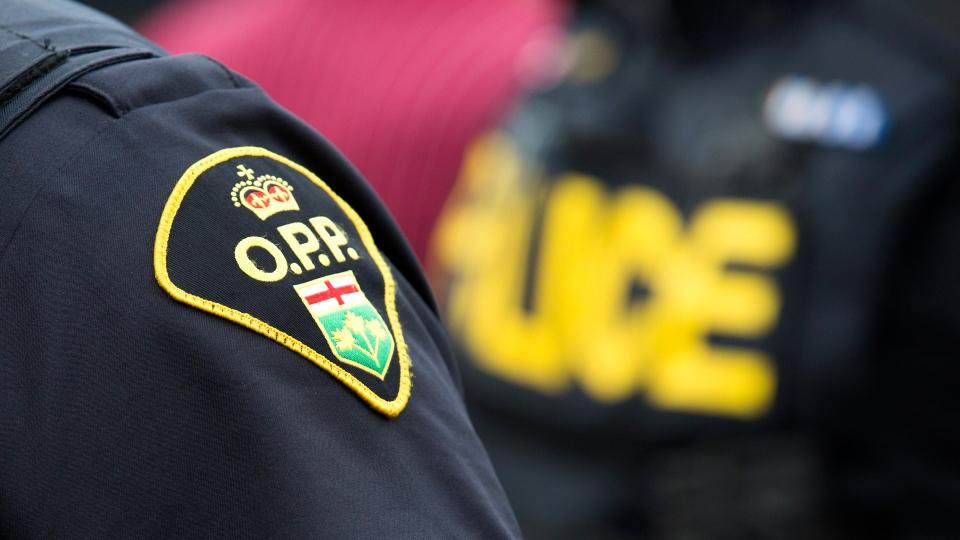UPDATE: Ontario ending mask mandates for most indoor settings on March 21
Posted Mar 9, 2022 02:31:00 PM.
Ontario is ending mandatory mask use in most indoor settings, including schools, following the return from March Break on March 21.
Ontario’s chief medical officer Dr. Kieran Moore made the announcement on Wednesday morning. The Ministry of Health described the announcement as an update into “Ontario’s plan to live with and manage COVID-19.”
“You can’t mandate masking forever, it has to be eventually an individual choice.”
Masking requirements will remain for public transit, long-term care, retirement homes and other health-care settings, congregate care settings, shelters, jails and homes for individuals with developmental disabilities. The province says mask rules will come to an end for all remaining settings on April 27.
NEW – Full details on the lifting of masking. Will be optional in most settings on March 21 including schools, but they will still be required on public transit, in hospitals, jails. All masking requirements to end April 27. pic.twitter.com/1ZV7hRupys
— Richard Southern (@RichardCityNews) March 9, 2022
“Removing the mask mandate does not mean the risk is gone,” said Moore, adding that masks can still help limit virus transmission and are still encouraged in some situations.
Moore says he will still wear a mask when he goes to some settings, like busy grocery stores and malls, and says people need to be tolerant of those who still choose to wear face coverings.
The province expects some COVID-19 indicators to increase as individuals begin interacting more without masks. Moore says Ontario has the tools to combat rising numbers, citing high vaccination rates and the arrival of other antivirals.
Moore’s Wednesday announcement replaced his final weekly COVID-19 update that was scheduled for Thursday.
Premier Doug Ford insisted Wednesday the decision to move away from masks was left up to his chief medical officer, adding “there was no pressure on” him to make the move with an election upcoming in June.
“I want to ensure Ontarians that my decision making and recommendations to government have not been affected by any understandings of the political system, they are based on evidence and science,” Moore said.
Ontario’s COVID-19 Science Advisory Table say they were not consulted on the province’s decision to remove masking requirements.
“I follow the recommendations and advice of the chief medical officer of Ontario” said Ford said when asked why the panel was not included in talks leading up to the decision.
Ontario changing isolation requirements, COVID data reporting
The province is also changing COVID-19 isolation requirements, including dropping a requirement for non-household contacts who are unvaccinated or immunocompromised to isolate.
For people who don’t live with someone who has tested positive for COVID-19 but were identified as a close contact, no one will need to self-isolate. Before Wednesday, those who are unvaccinated or immunocompromised were required to isolate for 10 days.
Changes are also coming to how the province reports COVID-19 data on March 11.
Virus-related deaths will now be broken down by “fatality type,” including whether COVID was the cause of death, contributed to deaths, or if the cause of death was unknown or missing. Deaths will also be categorized by vaccination status and age group. Deaths which are known not to be related to COVID will be removed from the overall total.
The province says due to changes in its testing guidelines it will stop reporting the reproductive number because they are no longer able to accurately track the total number of cases of COVID-19.
The Ministry of Health adds it is also looking into adjusting the frequency of reporting COVID data.
Dr. Moore says he estimates COVID-19 cases in Ontario are roughly ten times the confirmed daily number. The current seven-day average for new cases is 1,758 but health officials warn that cases are greatly underreported due to testing capacity and changes to the province’s testing policy.
BA.2, a sublineage of the Omicron variant, is expected to continue to spread in the province over the next few weeks and become dominant by mid-March. The variant is roughly 30 per cent more contagious than the original strain, but Moore has stressed that it’s not likely to result in a spike in hospitalizations.
Ontario ended most of its primary COVID-19 public health measures on March 1.
Proof of COVID-19 vaccination is no longer required at most Ontario restaurants, gyms and movie theatres, while nightclubs, sporting and concert venues have now eliminated capacity limits, and restrictions have been lifted on social gathering sizes.
— with files from Lucas Casaletto of CityNews








